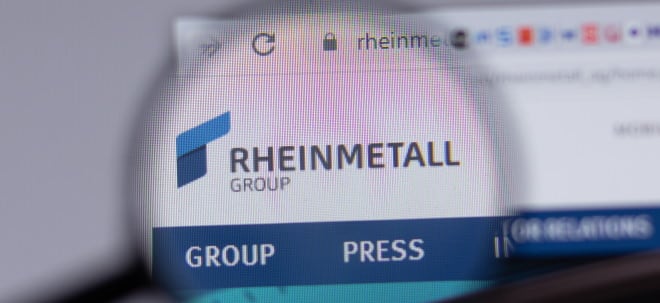Once-Weekly Insulin Efsitora Achieves Comparable A1C Reduction to Daily Insulin Therapy
Once-weekly insulin helped patients achieve an average A1C of 6.92% in QWINT-1 trial
Results support once-weekly insulin as effective alternative to daily treatment
CHICAGO, June 22, 2025 /PRNewswire/ -- Today, findings from the QWINT-1 study found once-weekly insulin efsitora alfa (efsitora) lowered blood glucose (blood sugar) levels as effectively as daily basal insulin in insulin-naïve type 2 diabetes. The results of the first-of-its-kind study were presented as a late-breaking symposium at the 85th Scientific Sessions of the American Diabetes Association® (ADA) in Chicago and simultaneously published in The New England Journal of Medicine.
One in four people with type 2 diabetes report not having taken their prescribed dosage of basal insulin correctly, in part due to the burden of daily injections and frequent dose adjustments. Delaying insulin injections for extended periods of time can lead to dangerous high blood glucose levels and long-term organ damage. This demonstrates a growing need for simpler options that make it easier to adhere to insulin therapy.
QWINT-1 is a Phase 3, open-label, randomized, parallel-design study evaluating the efficacy and safety of a fixed-dose titration of once-weekly insulin efsitora in 795 adults with type 2 diabetes who were taking basal insulin (a long-acting therapy used to maintain stable blood glucose through the day) for the first time. The study compared a fixed-dose titration of efsitora to once-daily insulin glargine, with the goal of determining whether a fixed-dose, once-weekly regimen could offer comparable blood glucose management while reducing the burden of starting and managing insulin therapy. In the study, efsitora was titrated to four fixed doses at four-week intervals, as needed for blood glucose management.
The study showed once-weekly insulin efsitora lowered blood glucose just as well as daily insulin glargine after 52 weeks. Efsitora dropped A1C levels by 1.31%, reaching an average A1C of 6.92%, compared to a 1.27% reduction and A1C of 6.96% with insulin glargine. A second analysis, which looked at results based on how patients followed the treatment, showed similar findings: efsitora reduced A1C by 1.19% (to 7.05%) versus a 1.16% reduction (to 7.08%) with glargine.
"The results confirm once-weekly insulin efistora can deliver similar level of blood sugar control as daily basal insulin, with the added benefit of a simpler dosing schedule," said Dr. Julio Rosenstock, senior scientific advisor, velocity clinical research at Medical City Dallas, and clinical professor of medicine, University of Texas Southwestern Medical Center, lead investigator of the QWINT-1 trial. "The novel fixed-dose regimen used in QWINT-1 for once-weekly efsitora, with titration options of only four different doses, has the potential to facilitate and ease the burden of starting insulin for both patients and providers, hopefully, improving adherence and long-term health outcomes, is a significant step forward in filling a treatment gap that existed for decades."
Lilly indicated it plans to submit efsitora for the treatment of type 2 diabetes to global regulatory authorities by the end of 2025.
Research presentation details:
Dr. Rosenstock will present the findings at the following symposium:
- Advancing and Facilitating Basal Insulin Therapy in Type 2 Diabetes—Breaking News on the QWINT 1, 3, and 4 Trials with Once-Weekly Insulin Efsitora Alfa!
- QWINT-1 Trial—Efficacy and Safety of Insulin Efsitora as a Weekly Basal Insulin Using a Novel Fixed-Dose Escalation Compared with Insulin Glargine in Insulin-Naïve Participants with Type 2 Diabetes
- Presented on Sunday, June 22 at 2:20 p.m. CT
About the ADA's Scientific Sessions
The ADA's 85th Scientific Sessions, the world's largest scientific meeting focused on diabetes research, prevention, and care, will be held in Chicago, IL, on June 20–23. Thousands of leading physicians, scientists, and health care professionals from around the world are expected to convene both in person and virtually to unveil cutting-edge research, treatment recommendations, and advances toward a cure for diabetes. Attendees will receive exclusive access to thousands of original research presentations and take part in provocative and engaging exchanges with leading diabetes experts. Join the Scientific Sessions conversation on social media using #ADASciSessions.
About the American Diabetes Association
The American Diabetes Association (ADA) is the nation's leading voluntary health organization fighting to end diabetes and helping people thrive. This year, the ADA celebrates 85 years of driving discovery and research to prevent, manage, treat, and ultimately cure—and we're not stopping. There are 136 million Americans living with diabetes or prediabetes. Through advocacy, program development, and education, we're fighting for them all. To learn more or to get involved, visit us at diabetes.org or call 1-800-DIABETES (800-342-2383). Join us in the fight on Facebook (American Diabetes Association), Spanish Facebook (Asociación Americana de la Diabetes), LinkedIn (American Diabetes Association), and Instagram (@AmDiabetesAssn). To learn more about how we are advocating for everyone affected by diabetes, visit us on X (@AmDiabetesAssn).
Media Contact: Mimi Carmodymcarmody@diabetes.org
![]() View original content to download multimedia:https://www.prnewswire.com/news-releases/once-weekly-insulin-efsitora-achieves-comparable-a1c-reduction-to-daily-insulin-therapy-302487408.html
View original content to download multimedia:https://www.prnewswire.com/news-releases/once-weekly-insulin-efsitora-achieves-comparable-a1c-reduction-to-daily-insulin-therapy-302487408.html
SOURCE American Diabetes Association


